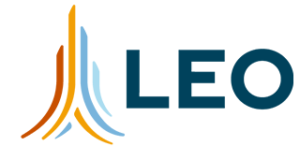Jeffrey Mosher welcomes back Krista Johnson, Deputy Director for Workforce Development at Michigan Department of Labor and Economic Opportunity (LEO).
Hear Krista and Jeffrey discuss how Michigan’s adult education programs boost literacy, jobs, and opportunity for entire families in the SoundCloud podcast shared below:
Jeffrey had several questions for Krista in this discussion:
Michigan’s reading scores are at an all-time low. Can you explain how adult education programs help improve literacy for both adults and their children?
Why is it important for parents to gain literacy and other essential skills, and how does this benefit the entire family?
With half a million Michiganders lacking a high school diploma, how do the state’s adult education programs open doors to better jobs and economic stability?
How can residents find and participate in the free or low-cost adult education programs available across Michigan?
» Visit MBN website: www.michiganbusinessnetwork.com/
» Subscribe to MBN’s YouTube: www.youtube.com/@MichiganbusinessnetworkMBN
» Like MBN: www.facebook.com/mibiznetwork
» Follow MBN: twitter.com/MIBizNetwork/
» MBN Instagram: www.instagram.com/mibiznetwork/
LANSING, Mich. — Michigan’s reading scores are at an all-time low. Research shows children of adults with low literacy skills are 72% more likely to struggle with reading themselves. When parents can read, they pass those skills on to their kids, setting the entire family up for success.
That’s why Adult & Family Literacy Week (Sept. 14–20) is such a critical moment to highlight the role of adult education. Right now, half a million Michiganders lack a high school diploma, a barrier that prevents them from finding good-paying jobs and helping their children thrive academically.
The Michigan Department of Labor and Economic Opportunity supports more than 110 free or low-cost adult education programs across the state, opening doors for adults to:
Build essential reading and math skills
Earn industry-recognized credentials
Increase their lifetime earnings potential (Michiganders with a high school credential earn $7,600 more per year than those without)
Break the cycle of intergenerational low literacy










